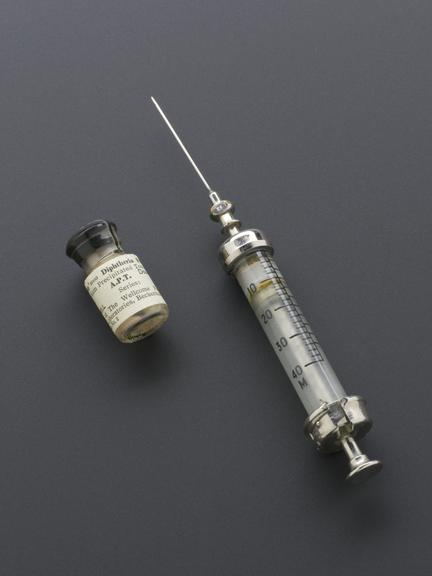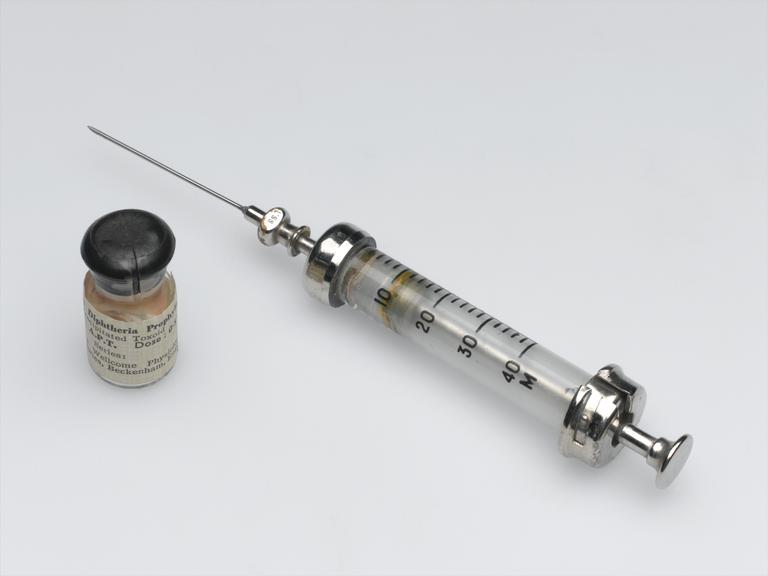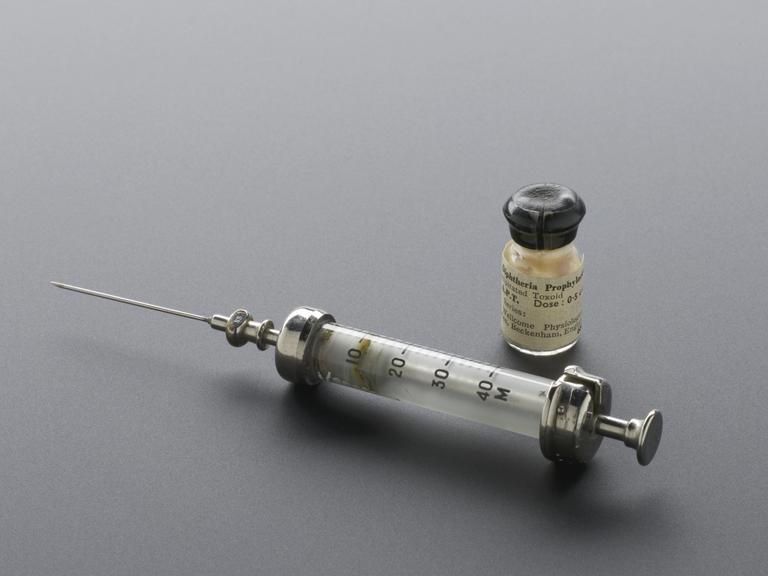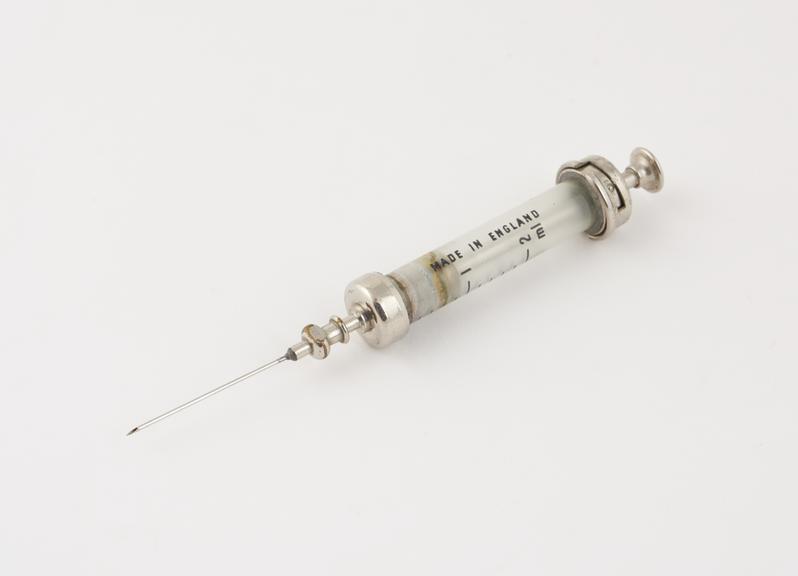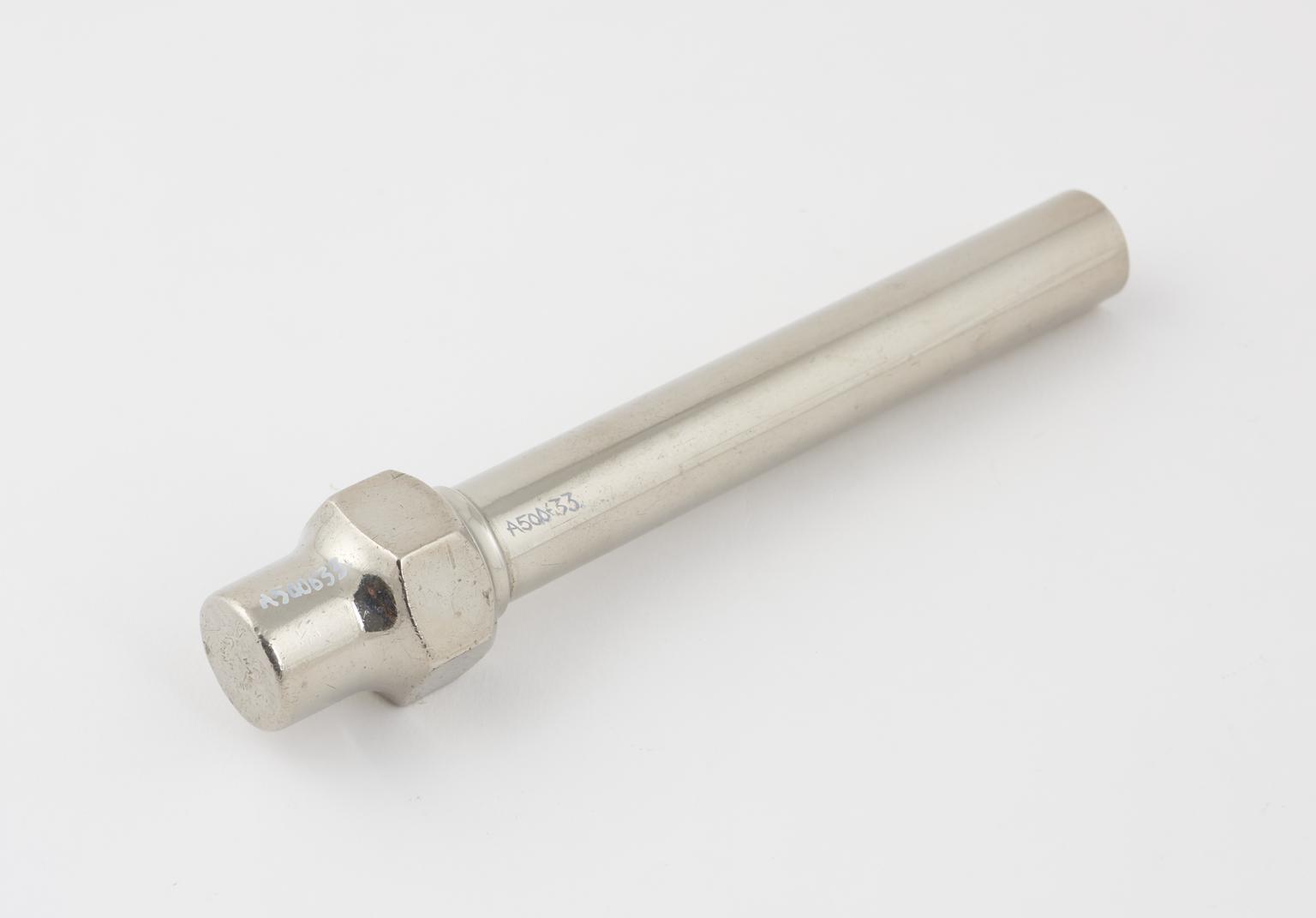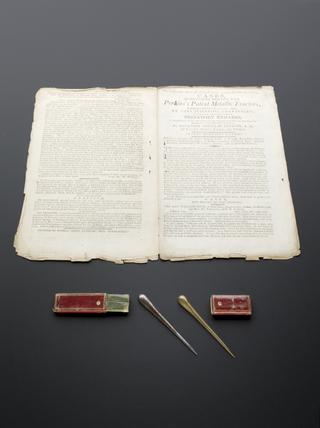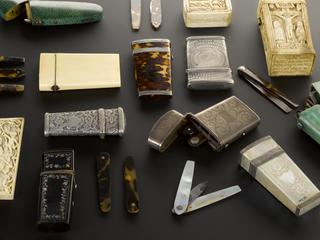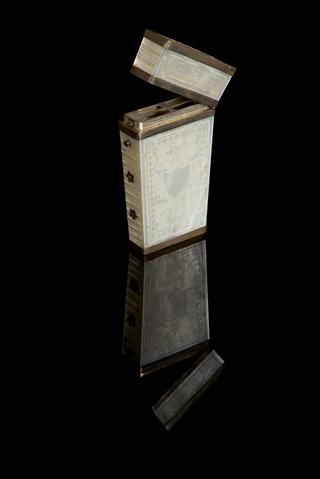Record-type hypodermic syringe, London, England, 1930-1960
Hypodermic syringe, Record-type, glass and nickel-plated brass, cased, by A L Hawkins and Company Limited, London, 1930-1960. (Case not seen.)
More
Hypodermic needles came into common use in the second half of the 1800s. They were invented by Scottish doctor Alexander Wood in 1853 – although French surgeon Charles Pravaz was independently developing a similar device at the same time.
Hypodermic needles like these are hollow so drugs or vaccines can be injected directly into the body. This particular example has a glass barrel with a scale printed on to the outside to measure how much was being given to the patient. It is shown here with a bottle of diphtheria vaccine (A629753/1).
- Measurements:
-
overall: 135 mm 18 mm, .04kg
- Materials:
- glass , brass (copper, zinc alloy) and nickel plated
- Object Number:
- A500633/1
- type:
- hypodermic syringe
- Image ©
- The Board of Trustees of the Science Museum



